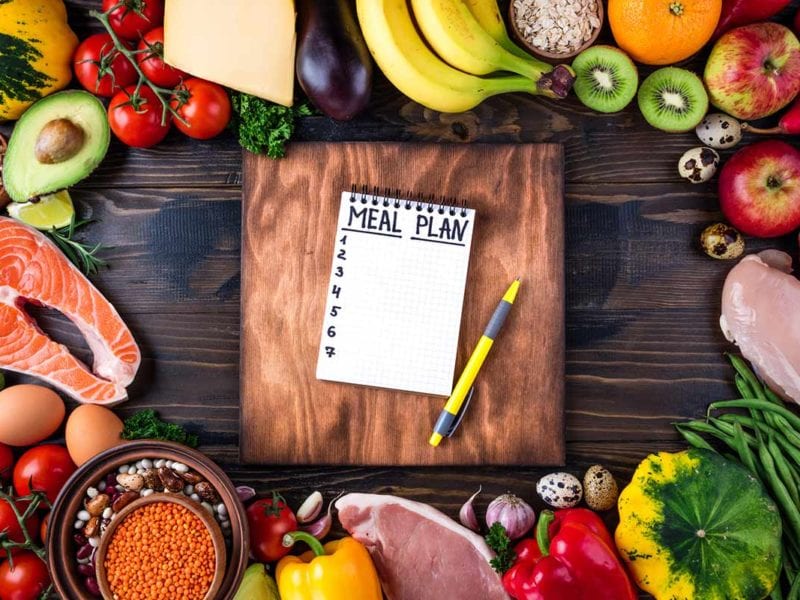
Pregnancy is a period that demands a lot of attention to the health of mother and child. The various concerns that the future mother must have are: her medical exams up to date, her hygiene, her well-being, and also, a healthy diet for pregnant women, which plays a decisive role in the correct and healthy development of the baby.
Many mothers feel insecure about what can be consumed by them and what should be avoided, so we have drawn up this list of food tips that are indispensable for any pregnant woman (and we will also reinforce which foods should be avoided during this period). Know now the 7 healthy eating tips for pregnant women.
Find out what nutrients a pregnant woman needs to eat
Every expectant mother needs to keep in mind that a balanced and complete diet is the way to a pregnancy without great risks, after all, she needs the help of all the macro and micronutrients for the baby to have a healthy development over the next nine months. For this reason, the practice of restrictive diets or poor eating habits is discouraged for these women.
The most important nutrient during pregnancy is folic acid. Folic acid, also known as vitamin B9, helps correct spinal closure by preventing spina bifida and the formation of the baby’s neural tube. This neural tube is where the baby’s entire nervous system will emerge. It is important to emphasize that the ideal would be that folic acid should be administered 3 months before gestation and maintained for at least 12 weeks.
Another very important nutrient is iron, which will help the future mother in the production of healthy hemoglobins for this phase, oxygenation of the brain, better sleep, a more effective blood circulation and also improve the immune system.
For mothers who suffer from nausea, the important thing is to eat foods with a high rate of vitamin B6 such as bananas, lentils and meat.
Value meat consumption
The consumption of meat (especially red meat) is essential for pregnant women. This food is a source of proteins of high biological value, which will help in the structuring of the baby’s body tissues and also in the replacement of eventual losses in the maternal organism. In addition, meat is rich in iron and vitamin B12, which are two essential micronutrients for the correct formation of cells and the baby’s neurological system.
It is only necessary to pay attention to the consumption of very greasy meat (always opting for leaner versions) and raw meat (which must be avoided due to the high risk of contamination). Mothers who choose the vegetarian lifestyle can also have a healthy pregnancy, as long as they are closely monitored by a doctor and a nutritionist.
The consumption of iron should be taken into account some points: calcium makes the body not absorb well the iron, but as it is necessary in the same way for the formation of the baby, the ferrous supplement is of extreme importance. To balance this difficulty of iron absorption that calcium brings, use and abuse the vitamin C that makes the reverse role helping a better absorption.
Don’t forget dairy products
Milk and its derivatives are also important in pregnancy. In addition to being good sources of high biological value proteins, iron and vitamin B12, these products help to ensure satisfactory intake of calcium and vitamin D, which are important in forming baby’s bone structure.
Vitamin D is the only vitamin that the body produces, to give a little help in healthy eating for pregnant women, just be exposed to the sun, preferably without sunscreen, in the early hours of the morning for 5 minutes. This will cause the production of vitamin D to be induced.

Include whole grains in the diet
The pregnant woman needs a lot of energy to be able to go through these nine months of fetal development without much difficulty. In addition to using much of her metabolic energy to structure a new organism, the mother also needs the energy to ensure the functioning of her own vital functions. For this reason, carbohydrate intake is so important for these women, since they are the foods recognized as the best sources of energy in nature.
But extreme caution is not enough: excessive intake of carbohydrates can lead to overweight and the development of gestational diabetes. To avoid these conditions, always prefer wholemeal carbohydrates (which are also rich in magnesium, selenium and zinc) and rely on the help of a dietician to establish the optimal amount of intake of these products.
Wholemeal foods are recommended because they have a low glycemic index and this causes glucose (energy) to be absorbed more slowly, prolonging the energy, sending less sugar to the blood and containing fibers that increase the feeling of satiety. Thus, future mothers will not want to pinch other foods out of hours.
Pay attention to fruits, vegetables and leaves
Fruits and vegetables should also be part of the pregnant woman’s diet. In addition to providing most of the vitamins and minerals that we consider essential for the quality of our health, these foods also have a high concentration of fiber. Ingestion of them helps the pregnant woman to combat constipation, which is common during the child’s nine months of development.
In addition, fruits, vegetables and leaves have high levels of iron, zinc, selenium, calcium, phosphorus, phytonutrients, flavonoids, antioxidants and various vitamins necessary for baby formation and mother’s well-being.
Fruits such as orange, acerola, cashew and papaya are essential for a healthy diet for pregnant women, as well as spinach, cabbage, basil, corn, pumpkin, which are major sources of iron and also help in the production of hormones, which will protect the mother and baby during pregnancy.
But be careful: fruits and vegetables must be very well cleaned to be consumed by pregnant women, avoiding unnecessary food infections.
It is interesting to choose organic foods that are free of pesticides and the nutrients are much more potent than the usual foods. Nowadays, there is a large supply of organic food, not just fruit, vegetables and vegetables.
Invest in supplementation, it can be essential in a healthy diet for pregnant women
Even if you eat all the foods mentioned above and follow a balanced diet with the help of a doctor and a nutritionist, some pregnant women may need to supplement their daily intake of nutrients due to the high demand of the baby. For this reason, it is very common to see pregnant women supplementing micronutrients such as iron, folic acid, omega 3 and vitamin B12.
Recommendations for the use or supplementation of DHA during pregnancy are relatively recent. DHA (docosahexaenoic acid) is the main type of omega-3 and has benefits for the development of brain and retina structures in the baby. This nutrient can be obtained by ingesting deep-water fish or even through supplements.
Supplementation of some nutrients during pregnancy may be essential for the good formation of the baby. Mainly, supplementation of vitamin B9, which is folic acid, and iron supplementation, since blood production should be increased. It is one more important subject to be discussed with your doctor.
Be careful with some foods
Since not everything is a flower, some foods should be avoided during pregnancy, as they may cause poisoning or uncomfortable symptoms in the mother-to-be. Pregnant women should avoid eating raw foods, especially fish and meat. Also pay attention to the salads that should be properly cleaned, prefer to eat them in your home or reliable hygiene places.
Besides some types of sweetener (such as saccharine, aspartame and sodium cyclamate), sausages (hams, mortadellas, sausages, sausages), processed foods in general, alcoholic beverages and drinks with high caffeine content (coffee, black tea, green tea, cola and energy drinks), this can shake the baby and make it difficult for mommy to sleep.
A well-nourished future mother has the guarantee of a much more peaceful pregnancy ahead, without major risks of complications. The nine months will be well protected when the mother takes care of the food and takes other measures. See a doctor regularly and have your prenatal care done correctly.
